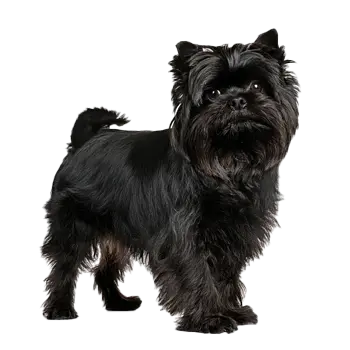The Diabletin Moustachu carries one of the most colorful and evocative alternate names in the canine world. This French designation translates directly to "little mustached devil" or "mustached little devil," a reference that perfectly captures both the breed's distinctive facial furnishings and their mischievous, spirited personality. The name reflects the breed's German origins and French popularity, where these small dogs earned recognition and admiration throughout the 19th and early 20th centuries.
The official registered name, Affenpinscher, derives from German origins meaning "monkey-like terrier" or "ape terrier," another reference to the breed's unique facial appearance with its prominent beard, mustache, and expressive, somewhat simian features. This German designation has remained the standard across international kennel clubs and breed registries worldwide. The name Affenpinscher appeared in German literature as early as the 1600s, though the modern breed developed significantly over subsequent centuries.
Beyond these primary designations, the breed has accumulated various nicknames throughout its history and across different regions. In some circles, enthusiasts simply refer to them as "Affens," a shortened, affectionate version of the registered name. The descriptor "monkey dog" appears frequently in casual conversation, though this remains an informal designation rather than an officially recognized alternate name. Some historical references include "Zwergaffenpinscher," meaning dwarf monkey pinscher, though this term has fallen largely out of use.
The Diabletin Moustachu achieved official recognition from major kennel clubs beginning in the early 20th century. The breed gained acceptance with the German Kennel Club first, followed by other European organizations. American recognition came later, with the American Kennel Club officially accepting the breed in 1936. Since that time, the Affenpinscher has maintained consistent recognition across all major international canine organizations.
Recognition standards emphasize the breed's distinctive features including the monkey-like facial expression, compact toy size, and characteristic rough, wiry coat. Each major kennel club maintains detailed breed standards outlining ideal physical and temperamental characteristics. While minor variations exist between different organizations' standards, they all emphasize the same essential qualities that define the authentic Diabletin Moustachu. The breed competes in the Toy Group in most organizations, though some European clubs classify them within Pinscher and Schnauzer groups, reflecting their historical development and relationship to other similar Continental breeds.

